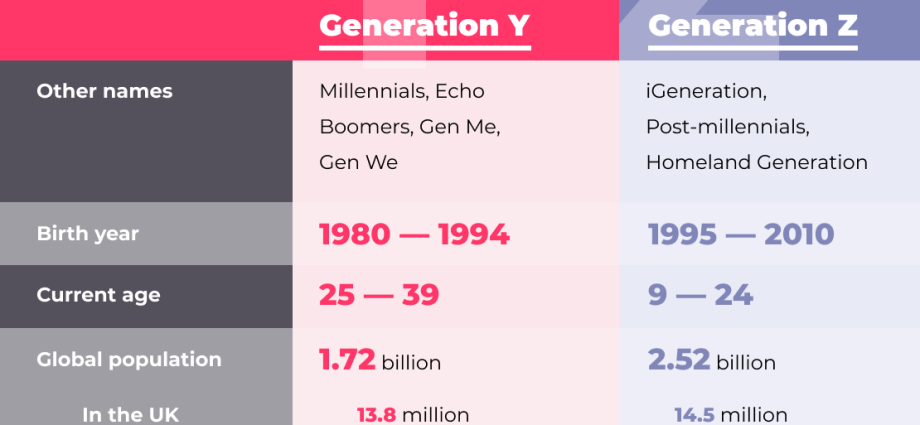Cuprins
Generation Y, also known as the NEXT generation or millennials, born from 1984 to 2003, are the creators of their lives. These ambitious workaholics create their own reality. However, under the guise of success and happiness lies the fear of poverty and the inability to live life brightly. In the anamnesis — parents who quietly grow peonies in the country. In dreams — the rich and famous, who should be equal. Career marketer Jeanne Lurie has identified Generation Y traits that can harm them.
1. Dependence on money
The dashing 90s were the time of the division of society into classes, and the great Union of Republics into independent states. Representatives of the NEXT generation, of course, were still too young to participate in setting new boundaries, but they understood that right now they have a chance to create their own destiny and make capital at their own discretion.
Material wealth suddenly ceased to be shameful and began to occupy a central place in the mental picture of one’s own future. The biggest fear of the “gamers” is poverty. Working to the point of losing momentum, without holidays and vacations (parents taught that money should be earned by hard work), an endless race from project to project, a total lack of time for oneself — these are the three pillars that can undermine the health of a modern perfectionist.
2. Striving for the perfect appearance
According to research by the American Psychological Association, Generation Y surpassed the previous Generation X in the constant pursuit of the ideal external image and, albeit imaginary, in social networks, but still social success. The level of exactingness to oneself has increased by 30%, and to others — by 40%.
Here it is worth remembering the cult of thinness, and the ideal faces of girls and boys from the covers of glossy magazines, Hollywood films, marketing manipulations of manufacturers of goods and services that convince that happiness is in physical perfection. Hence — fitness to the point of exhaustion and the first surge of anorexia among children in the 90s.
Instead of body positivity, which never took root on Russian soil, there is total hatred for the “fat” body, accompanied by a bunch of neuroses, diets and dubious pills.
3. Depression and addiction
Life credo of generation Y: “My life is my rules, success is the main thing, career is a race, I want everything at once.” And really, why should a person like to live by someone else’s rules and «not want anything and someday later»? However, it is the NEXT generation that is more prone to depression, suicide and all sorts of addictions, from gambling to shopaholism, and this is not counting alcohol abuse.
4. Neurotic perfectionism
Perfectionism as “a combination of excessively high personal standards and an excessive tendency to self-criticism” arises in millennials as a result of pressure — including from themselves. It forces them to “fit” their lives to an ever-increasing number of criteria for success. You can’t hide from him anywhere, he is sewn into the program, and normal perfectionism is the engine of progress.
However, if the bar is unattainable, and there is no room for error, the person striving for success becomes neurotic. It’s close to depression and anxiety. Millennials also become patients of psychotherapists, who are so immersed in the world of illusions and imaginary success that they have completely lost touch with reality.
5. Pleasure from the result, not from the process
Millennials don’t know how to live and enjoy the moment. They are always somewhere in the future. They open a business, occupy a top position in a large corporation, publish their own book. The “games” get a dose of endorphins only when the checkbox in front of the goal is ticked, and, alas, they completely forget that the path to happiness is also a buzz. The most annoying thing is that the feeling of euphoria from the result does not last long, like from buying the latest smartphone model. A day or two — and a new goal is needed. Otherwise — blues and boredom.










